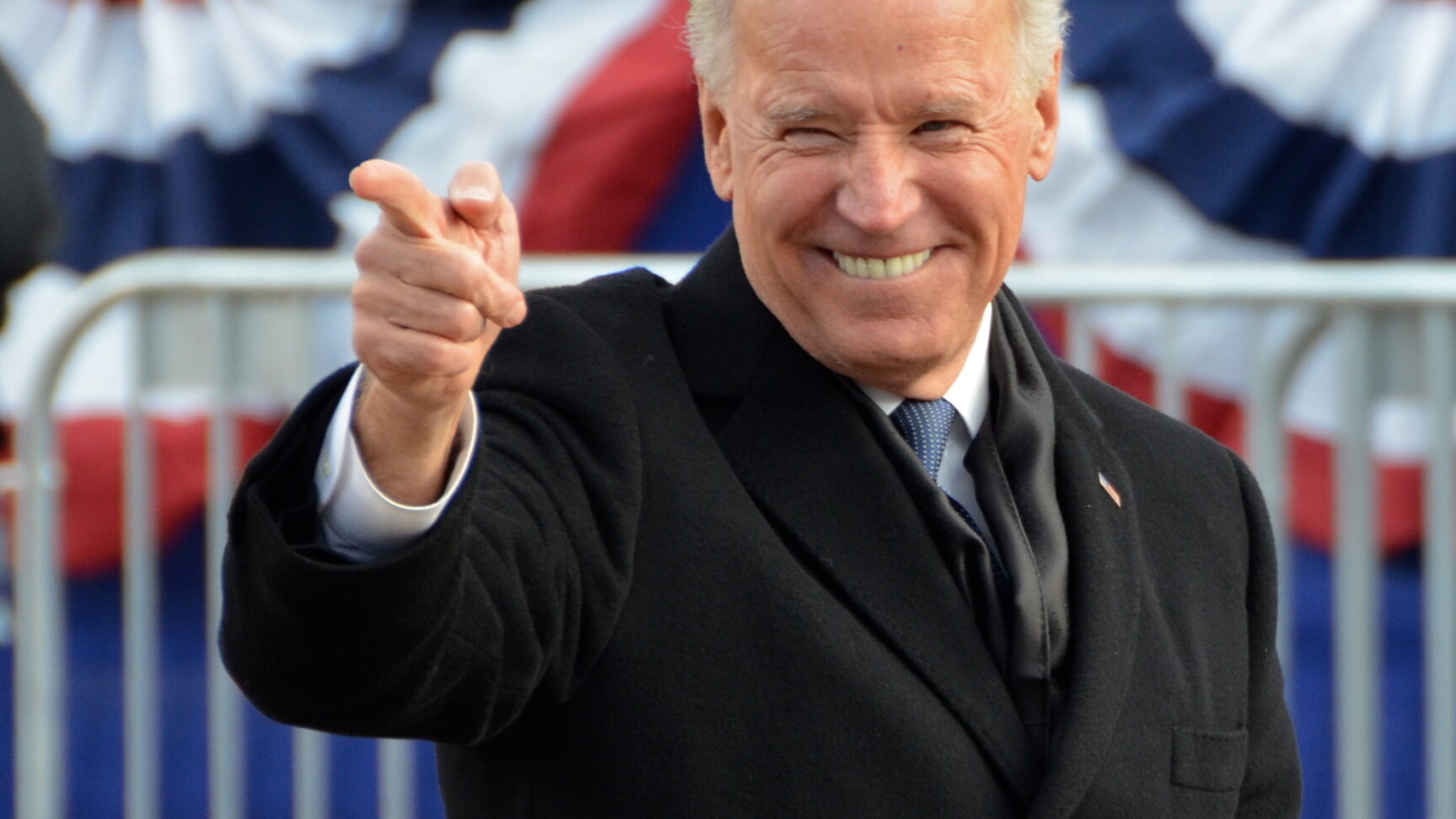
The crisis of American power: How Europeans see Biden’s America
Most Europeans rejoiced at Joe Biden’s victory in the US presidential election, but they do not think he can help America make a comeback as the pre-eminent global leader
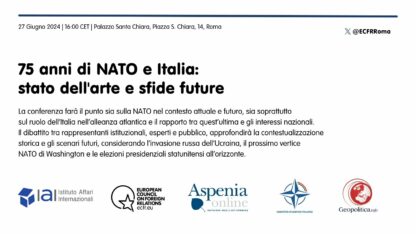
In occasione del 75esimo anniversario della NATO, la conferenza farà il punto sia sulla NATO nel contesto attuale e futuro, sia soprattutto sul ruolo dell’Italia nell’alleanza atlantica e il rapporto tra quest’ultima e gli interessi nazionali
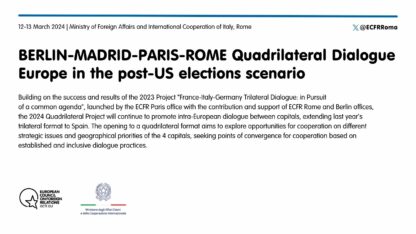
Building on the success and results of the 2023 Project “France-Italy-Germany Trilateral Dialogue: in Pursuit of a common agenda”, the 2024 Quadrilateral Project will continue to promote intra-European dialogue between capitals, extending last year’s trilateral format to Spain
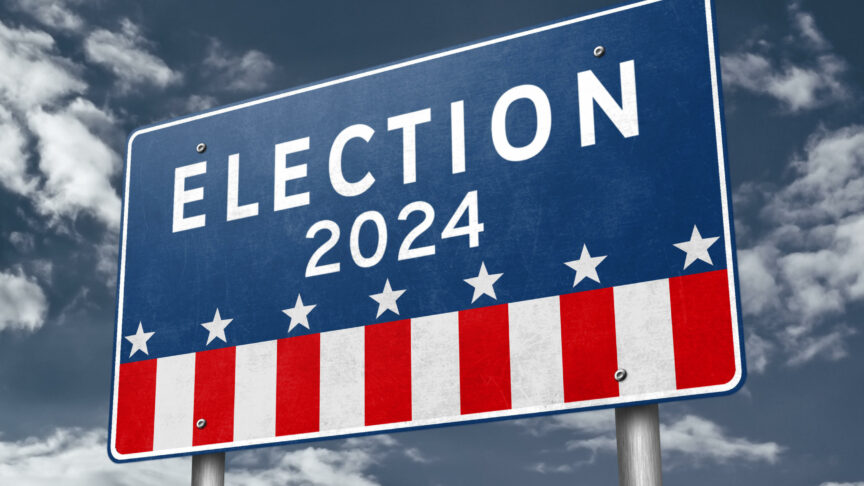
The candidates for the Republican primaries hold diverging views on the future of US foreign policy. In the event of a Republican victory, Europeans must prepare for an end to American support to Ukraine.
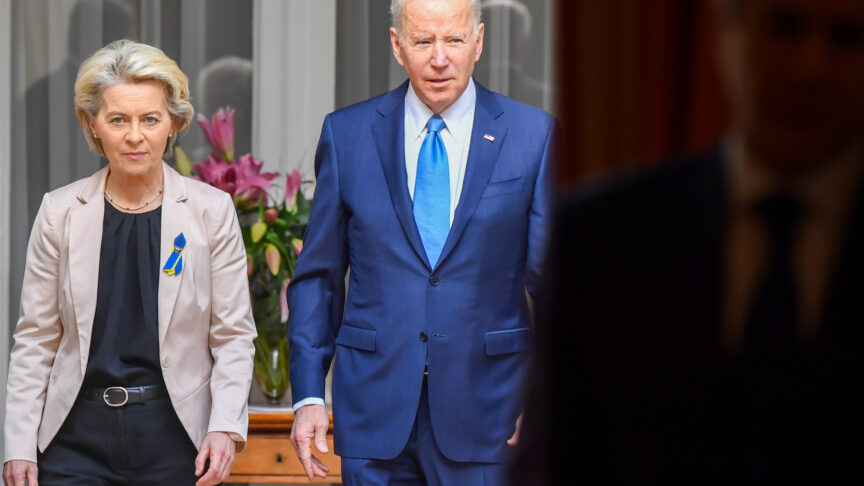
The Inflation Reduction Act may reduce US dependency on China, but it also risks harming the transatlantic relationship. European governments must position themselves as critical allies for the US in order to preserve their economies – and effectively counter China’s geo-economic challenge.
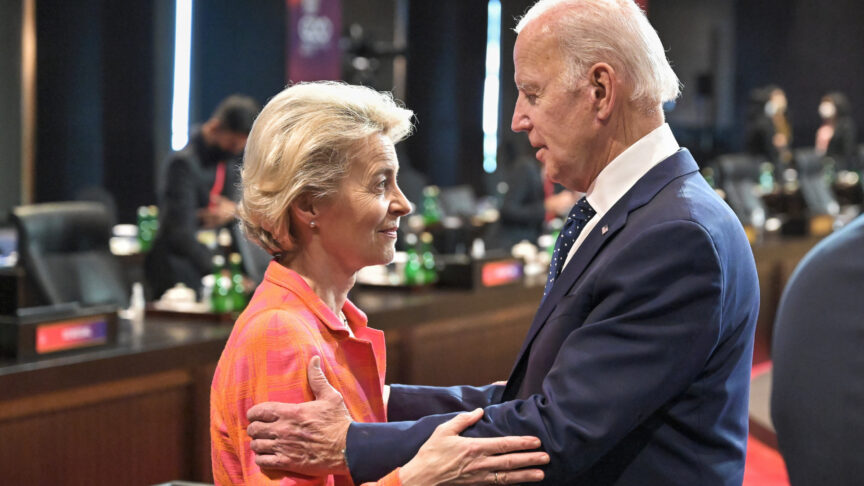
A few short years after being declared brain dead, the transatlantic alliance is thriving, with Americans and Europeans coordinating their response to Russian aggression and sharing similar views on China. But new storm clouds are gathering, and Europeans must prepare for darker days ahead.
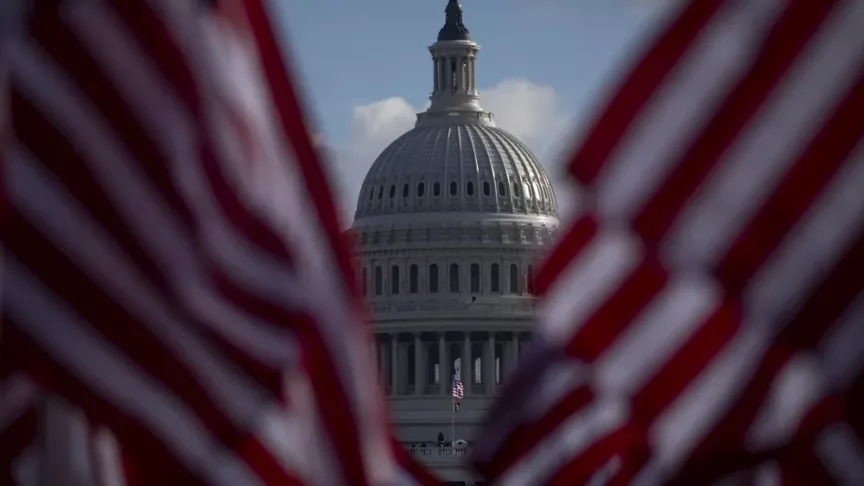
Three Republican ‘tribes’ are competing to write their next president’s US foreign policy. Whether ‘restrainers,’ ‘prioritisers,’ or ‘primacists’ emerge on top will have profound implications for Europe and the globe
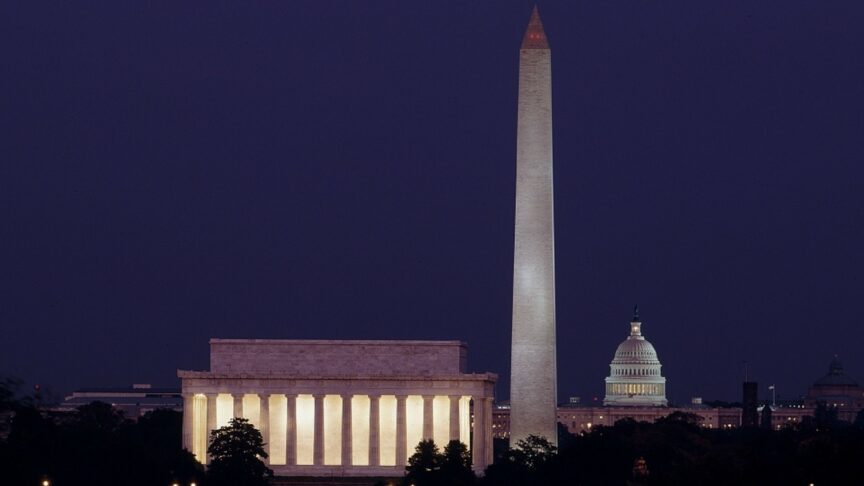
A Republican-controlled Congress could have significant consequences for the EU – on funding for Ukraine, but also at the level of political symbolism and attitudes towards Europe’s conservative strongmen
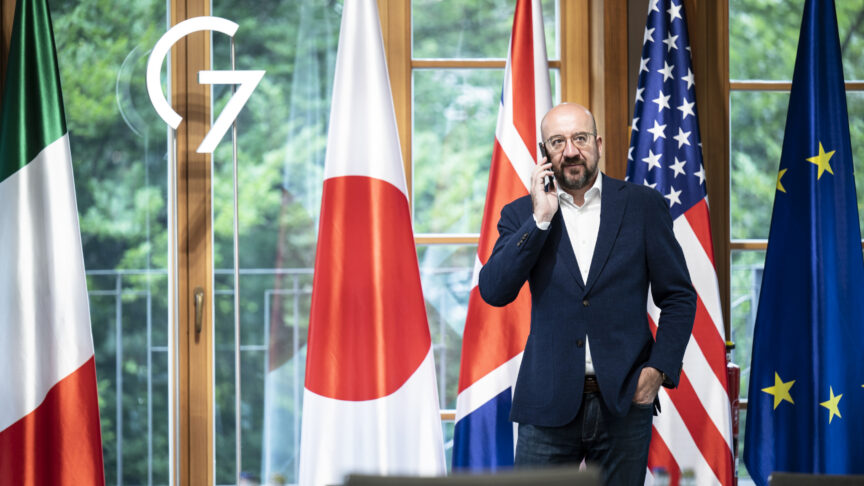
The EU has made insufficient progress in enhancing its sovereignty, particularly in security and defence. The union now needs to overcome internal differences to bolster its external ability to act.

Russia is the first state to use nuclear threats as part of a war of expansion. Unless it loses in Ukraine, the world will become a far more dangerous place.
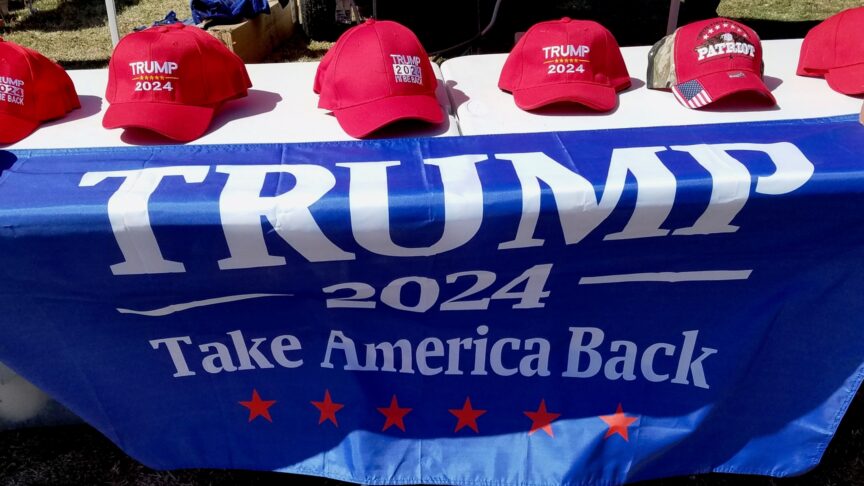
Europeans should be concerned not just with whether Trump will win but how to deal with the version of post-Trump America that could emerge in 2025
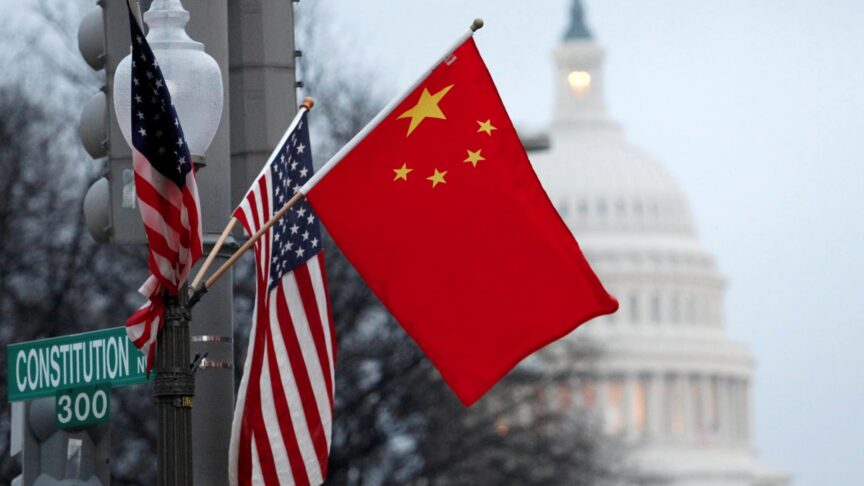
A majority of European citizens believe a new cold war with both China and Russia is under way – but they mostly do not think that their own country is involved
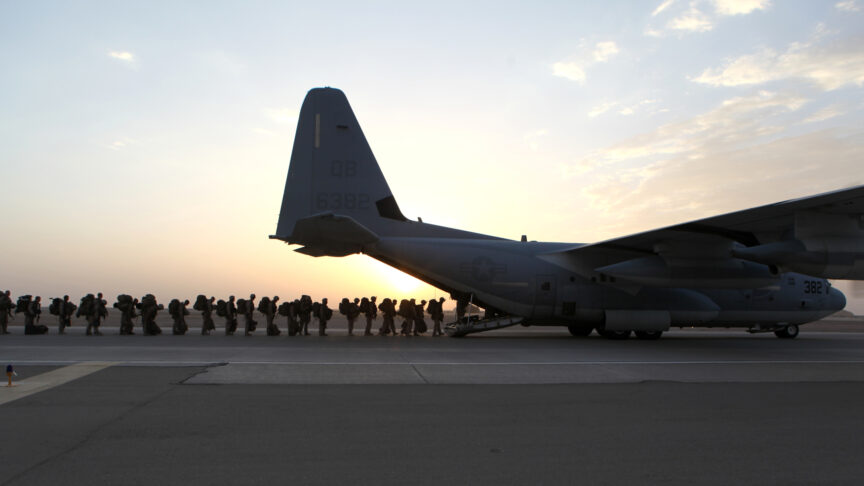
ECFR’s policy experts examine what the Taliban takeover means for countries and regions around the world: Europe, the US, the Middle East, Russia, China, Iran, Turkey, and the Sahel
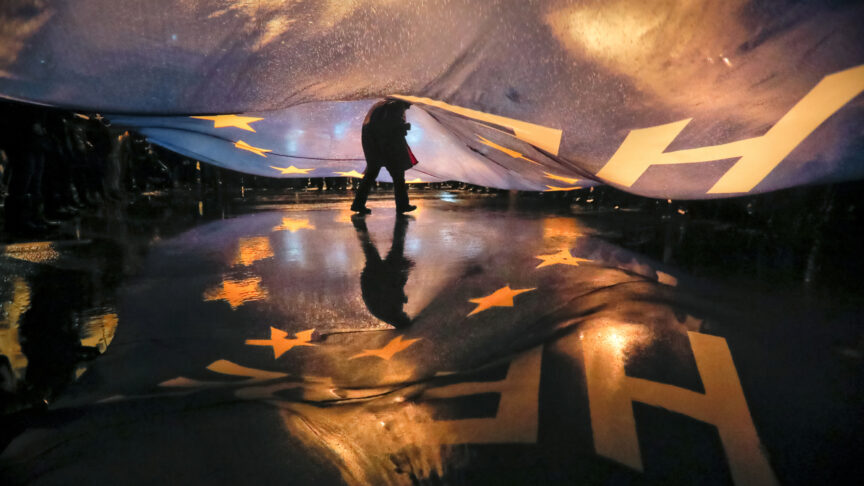
European policymakers should set up high-profile national institutions that are charged with tackling corruption and capable of working within an international network

The Biden administration’s Interim National Security Strategic Guidance reflects an evolution in US strategic thinking and policy priorities
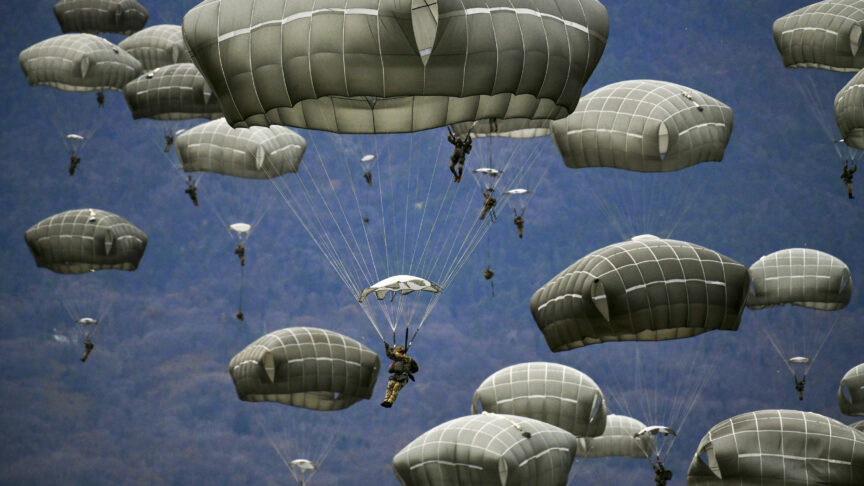
Artificial intelligence is a rapidly advancing field that policymakers everywhere are struggling to keep up with
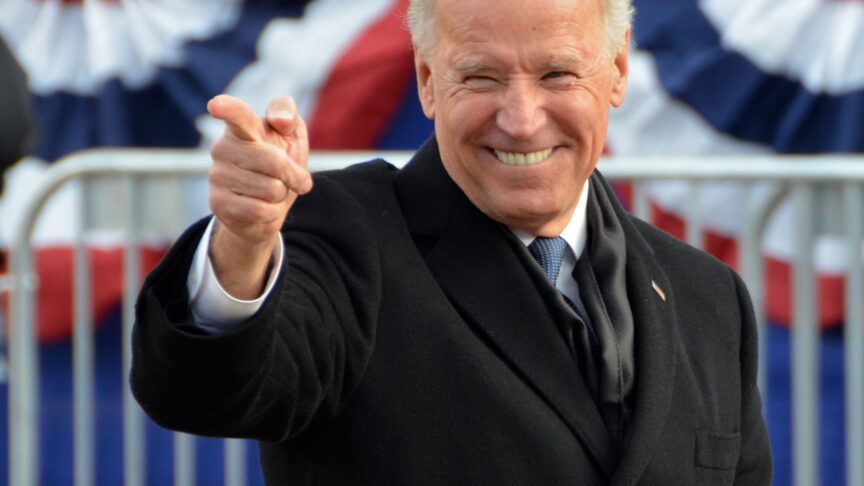
Most Europeans rejoiced at Joe Biden’s victory in the US presidential election, but they do not think he can help America make a comeback as the pre-eminent global leader
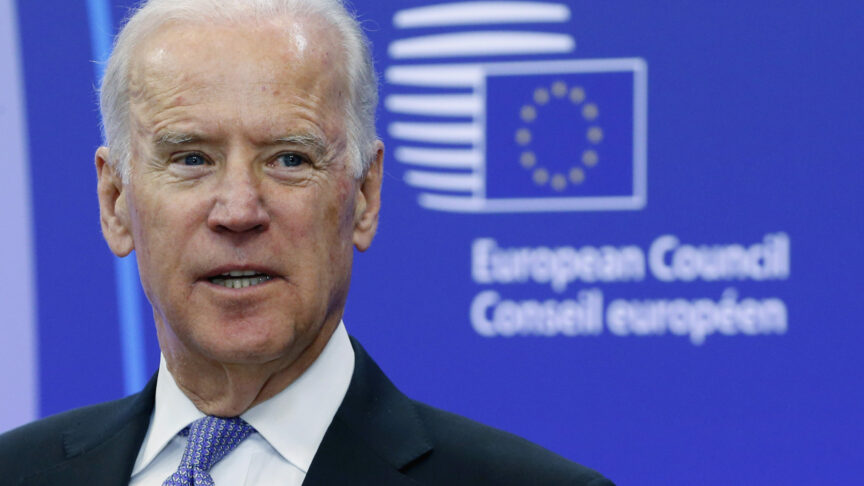
The Trump years galvanised Europeans’ efforts to strengthen their own sovereignty; they now need to agree concrete offers they can make to the new administration
Introduction For most Europeans, it is now obvious that the foreign policy of US President Donald Trump threatens the global liberal order. Trump’s hostility towards…
Four views from our authors on Chinese and Taiwanese views of the roots of Trump’s strategy and trade policy, and Chinese blind spots
The rules-based international order is under threat. The EU should place its defence at the centre of its global strategy.

The candidates for the Republican primaries hold diverging views on the future of US foreign policy. In the event of a Republican victory, Europeans must prepare for an end to American support to Ukraine.

The Inflation Reduction Act may reduce US dependency on China, but it also risks harming the transatlantic relationship. European governments must position themselves as critical allies for the US in order to preserve their economies – and effectively counter China’s geo-economic challenge.

A few short years after being declared brain dead, the transatlantic alliance is thriving, with Americans and Europeans coordinating their response to Russian aggression and sharing similar views on China. But new storm clouds are gathering, and Europeans must prepare for darker days ahead.

Three Republican ‘tribes’ are competing to write their next president’s US foreign policy. Whether ‘restrainers,’ ‘prioritisers,’ or ‘primacists’ emerge on top will have profound implications for Europe and the globe

A Republican-controlled Congress could have significant consequences for the EU – on funding for Ukraine, but also at the level of political symbolism and attitudes towards Europe’s conservative strongmen

The EU has made insufficient progress in enhancing its sovereignty, particularly in security and defence. The union now needs to overcome internal differences to bolster its external ability to act.

Russia is the first state to use nuclear threats as part of a war of expansion. Unless it loses in Ukraine, the world will become a far more dangerous place.

Europeans should be concerned not just with whether Trump will win but how to deal with the version of post-Trump America that could emerge in 2025
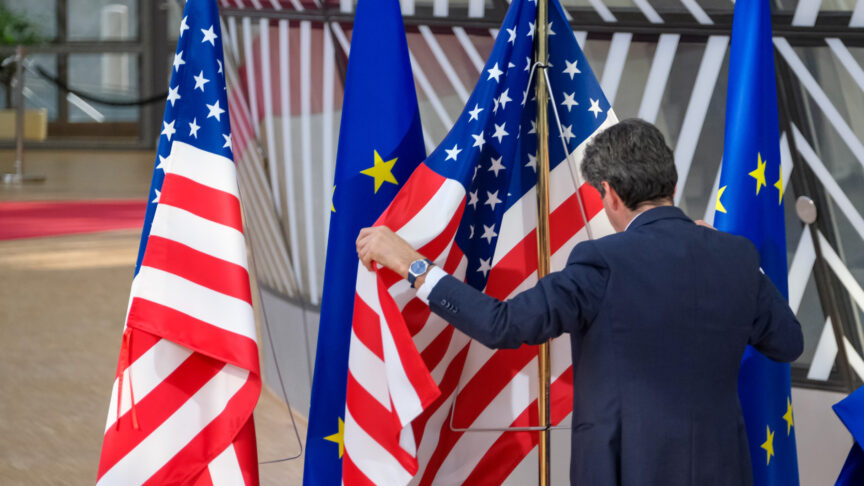
The US may have dominated Western efforts to defend Ukraine, but future American leaders will expect Europeans to take up most of the burden of dealing with Russia
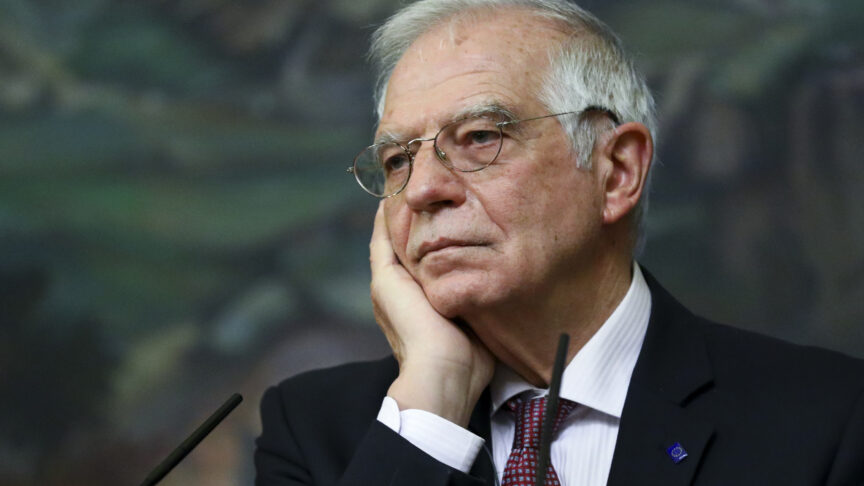
On a fundamental level, Europe’s lack of agency in the Russia-Ukraine crisis stems from a growing power imbalance in the Western alliance
European leaders are underestimating the danger that Trump presents to the transatlantic alliance and assuming too much continuity in the event of a Clinton presidency
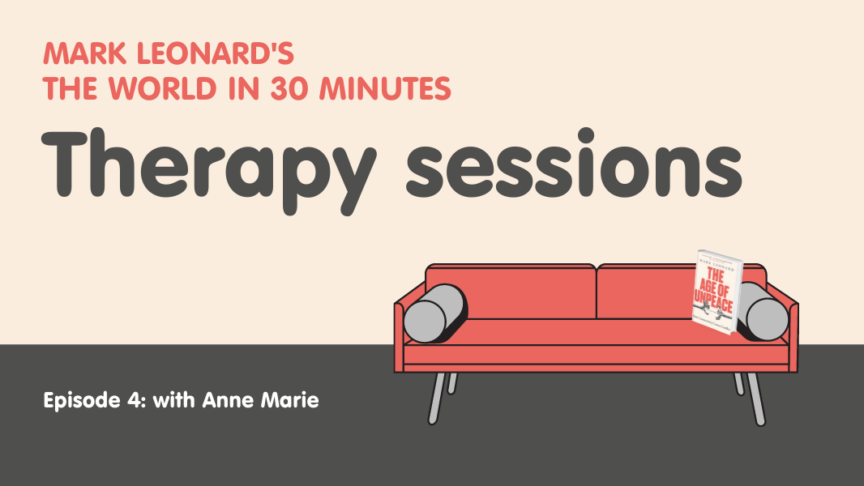
Join us on this journey to a more therapeutic approach to international relations. The mini-series brings you five special episodes with guests including today’s Anne-Marie Slaughter, Marietje Schaake, and Dan Drezner.

How will the Western withdrawal impact on the state of European defence and military capabilities?
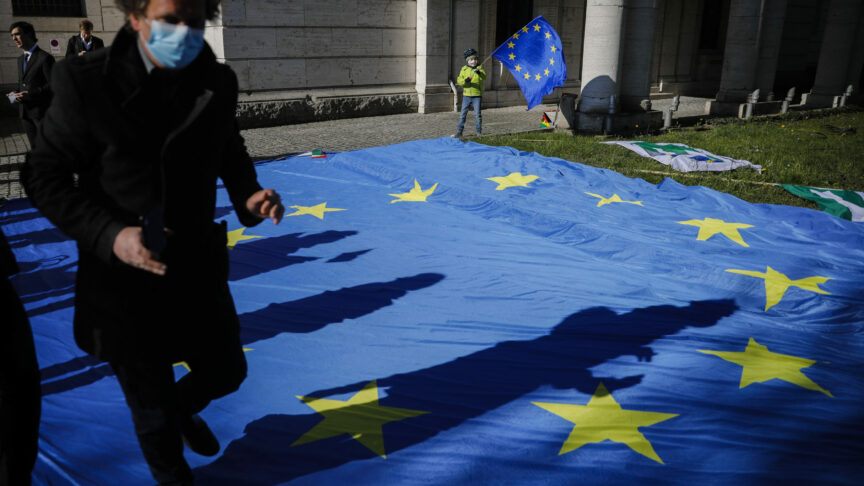
How well does the transatlantic alliance still fit with the way that Europe and the United States now see their goals in foreign policy?
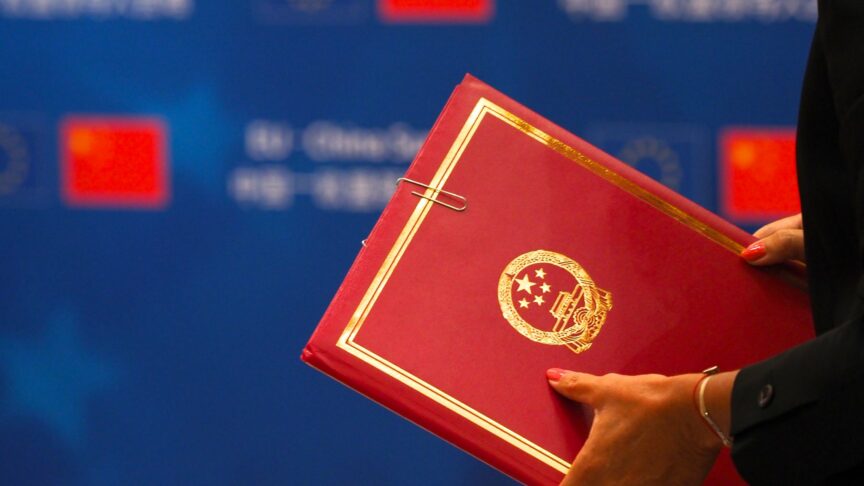
What are the prospects for transatlantic cooperation on China now that a new US administration is in power?

How do Europeans assess the future of transatlantic relations?

Mark Leonard and Jeremy Shapiro predict ten bright and bold policy projections for the year to come
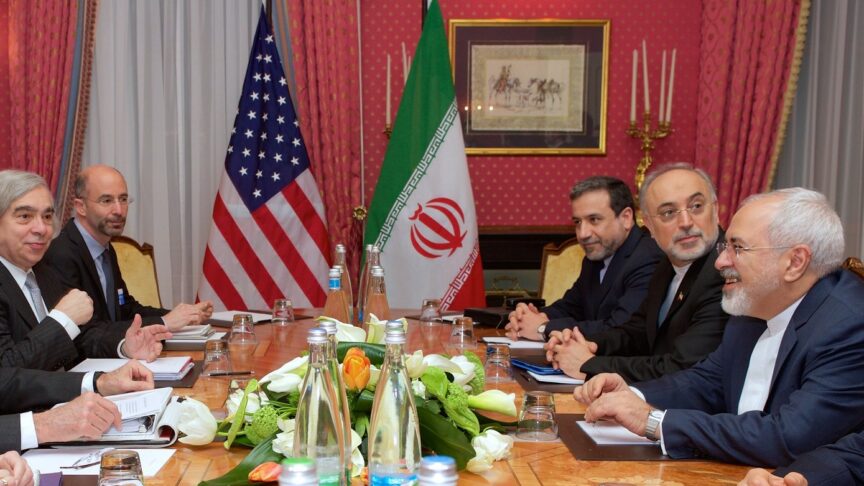
To what extent can and will Iran policy be a priority of the incoming administration? What can Europeans do to bolster transatlantic diplomacy on Iran?
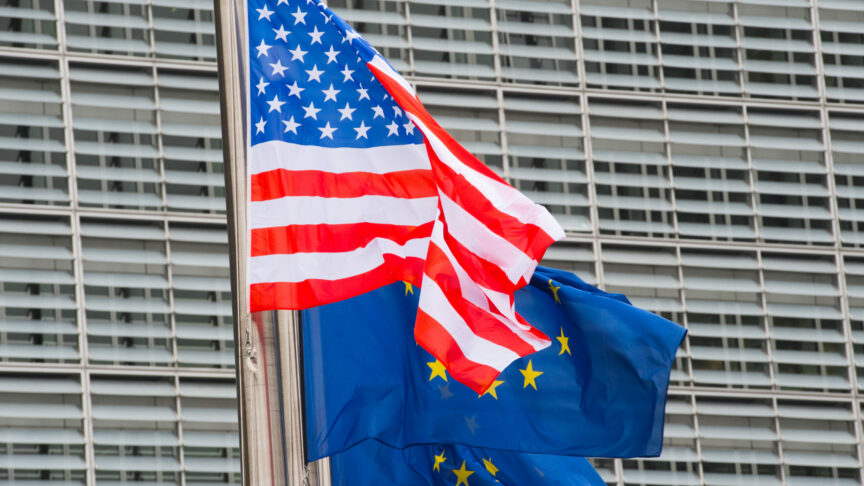
When Biden enters the White House, he will look for a Europe that brings solutions rather than problems. Europeans should show they can be an equal partner & offer him a new transatlantic bargain.
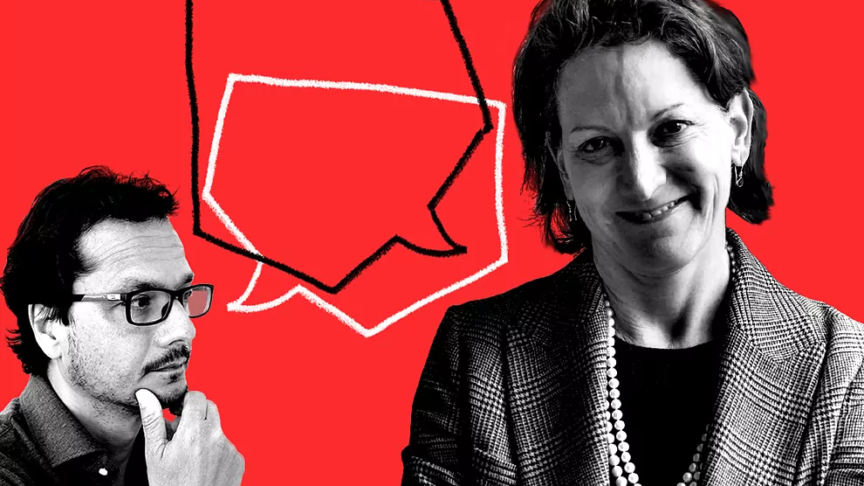
Head of ECFR’s Madrid Office, Jose Ignacio Torreblanca talks to the American historian, a Pulitzer Prize winner for Gulag, and expert on authoritarian populism about…
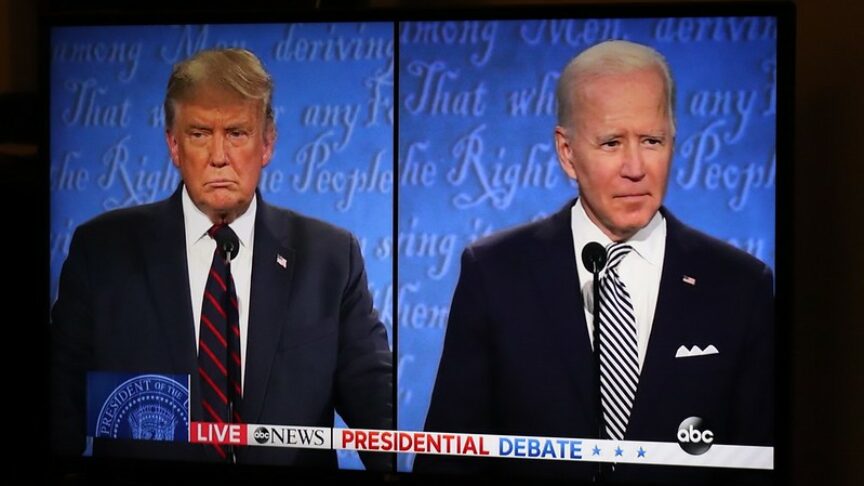
How much impact does the future US president have on the very concept of European sovereignty? Will the idea and initiatives to build more strategic autonomy in Europe be put back to bed with Joe Biden in the White House?

In occasione del 75esimo anniversario della NATO, la conferenza farà il punto sia sulla NATO nel contesto attuale e futuro, sia soprattutto sul ruolo dell’Italia nell’alleanza atlantica e il rapporto tra quest’ultima e gli interessi nazionali

Building on the success and results of the 2023 Project “France-Italy-Germany Trilateral Dialogue: in Pursuit of a common agenda”, the 2024 Quadrilateral Project will continue to promote intra-European dialogue between capitals, extending last year’s trilateral format to Spain

Este debate fue una iniciativa del Foro Cívico, de la Oficina en Washington para Asuntos Latinoamericanos (WOLA), el Open Society Foundations (OSF) y el European…

What, if anything, can one say about the longer-term perspectives for the US-Russia relationship?
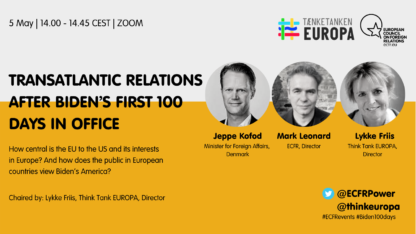
How central is the EU to the US and its interests in Europe? And how does the public in European countries view Biden’s America?
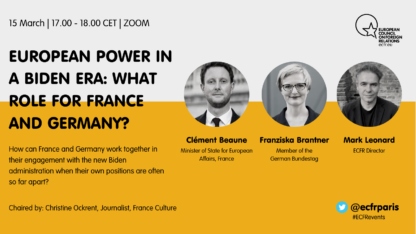
ECFR’s latest polling finds that Europeans celebrated Joe Biden’s victory but are sceptical that we will see a global resurgence of US power and…
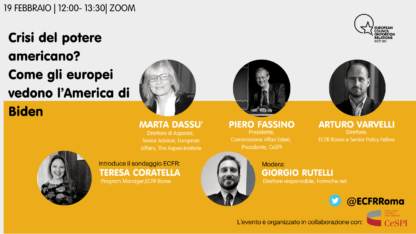
Nonostante a novembre gli europei abbiano festeggiato la vittoria di Joe Biden, la maggior parte rimane scettica sulla possibilità di assistere ad una ripresa globale della potenza statunitense
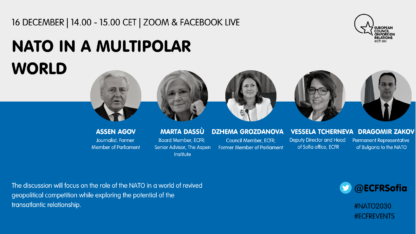
The European Council on Foreign Relations is delighted to invite you to a discussion on the role of the NATO in a world of revived geopolitical competition with a focus on the potential of the transatlantic alliance
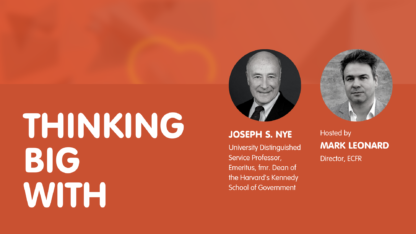
Can America come back, as President-elect Joe Biden announced? Mark Leonard debates the idea with Joseph S. Nye
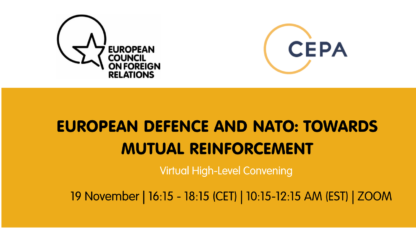
The current Covid19 crisis has reanimated the debate on defence, bringing to light new concerns, insights, and considerations about our future shared security. The objective of this initiative is to have an informative and innovative discussion on the future of European Defence and of NATO to drive toward mutual reinforcement.